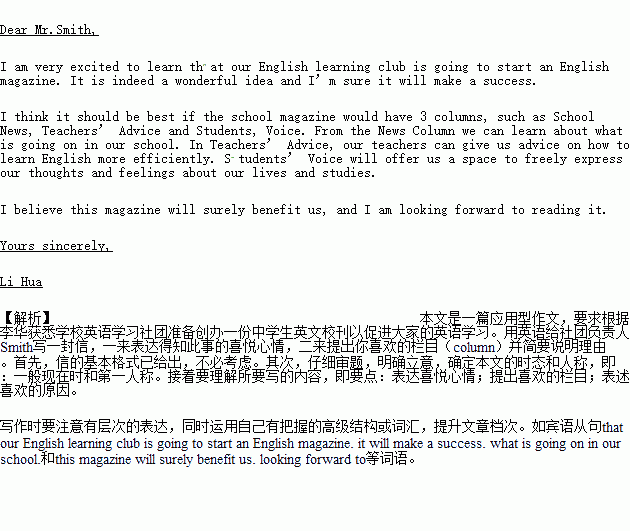题目内容
假如你是李华,获悉你校英语学习社团准备创办一份中学生英文校刊以促进大家的英语学习。请你用英语给社团负责人Smith写一封信,一来表达你得知此事的喜悦心情,二来提出你喜欢的栏目(column)并简要说明理由。
注意:1.词数100左右;
2.信的开头和结尾已为你写好。
Dear Mr. Smith,
__________________________________________________________________________________________________________________________________________________________________________________________________________________________________________________________________________________________________________________________________________________________________________________________________________________________________________________________________________________________________________________________________________________
Yours sincerely,
Li Hua
练习册系列答案
 小学期末标准试卷系列答案
小学期末标准试卷系列答案
相关题目


 the contrary, people blessed with a positive attitude think that anything is possible. They look for ways to solve the problems, they see the good in everybody,and they are grateful for all the good things in their lives.
the contrary, people blessed with a positive attitude think that anything is possible. They look for ways to solve the problems, they see the good in everybody,and they are grateful for all the good things in their lives.